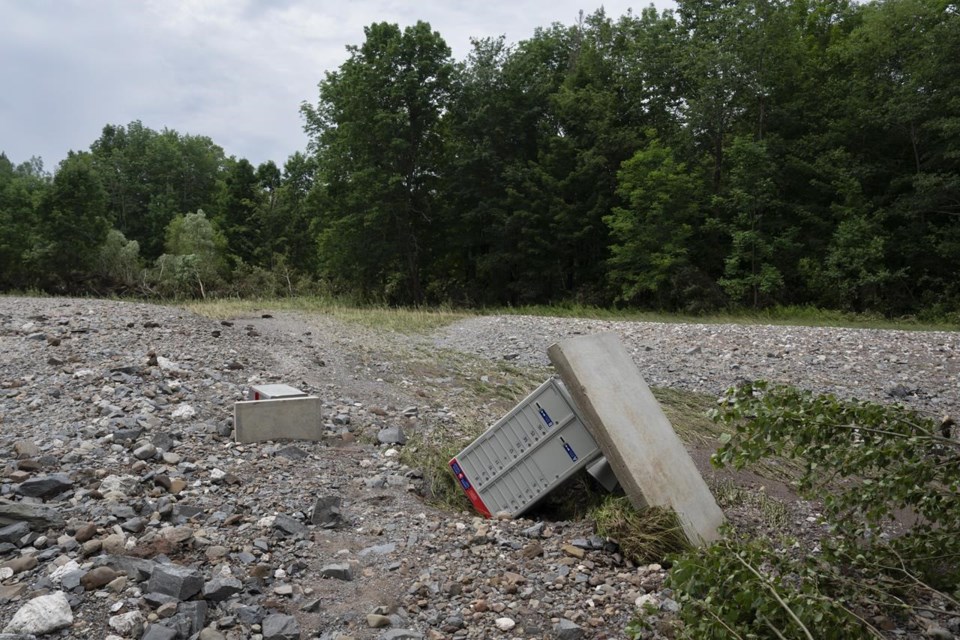HALIFAX — Frustration is building with a lack of a commitment from the Nova Scotia government to buy and demolish some of the Halifax area homes ravaged by massive flooding last July.
Halifax Regional Council sent a letter on Oct. 16 asking for a buyout program for some homes on Union Street in the suburb of Bedford that were heavily damaged when the nearby Sackville River spilled its banks following torrential rain on July 21.
As late as two weeks ago, Housing Minister John Lohr said he was unaware of the letter, although his department has subsequently acknowledged receipt of the city's request.
Margaret Dodge is a Union Street resident who is anxious to get an answer on whether the government will buy her home, which sits just metres from the Sackville River.
“I’m stuck with a home that I can’t sell and I can’t get any insurance anywhere because I'm a risk,” Dodge said in an interview Tuesday.
She is still living at her son's home six months after exiting her house by dinghy last July because of flooding caused by up to 250 millimetres of rain that fell over a 24-hour period.
The 66-year-old said it’s at least the fourth time her home has been flooded over the last 15 years. Dodge said she has received more than $100,000 in federal disaster relief since the July flood but added that it’s not enough to cover damage estimated at over $260,000.
“I can’t keep doing this,” she said. “I want them to step up and buy the houses because they did it before in Cape Breton. What’s the difference with ours?” Dodge was referring to severe flooding in Sydney, N.S., in 2016 that prompted the government of the day to offer to buy 18 homes.
Tim Outhit, who represents the Bedford area on regional council, said it makes sense to buy some of the homes rather than continually pay out disaster relief when they are damaged by flooding.
“Stop throwing good money after bad and realize that there’s a few houses there that should just be demolished,” he said. “But that logic doesn’t seem to be trickling down.”
Housing Department spokeswoman Krista Higdon said Monday in an email that the federal program for disaster relief doesn't allow for the purchase of flooded homes. Higdon added the provincial Emergency Management Office has been helping disaster financial assistance applicants from across the province.
“Twenty-five applications have been received from Union Street in Bedford,” she said. “Nine have been paid out thus far for their eligible damages with the remaining claims being in various stages of completion.” She made no mention of whether the province would come up with its own home buyout program.
Meanwhile, Mark Munro said the lower level of his father’s Union Street home is still uninhabitable and it’s been impossible to find a contractor to do the necessary work.
Munro said the wait for a decision from the province is enough to make people “throw their hands in the air and give up.”
“I don’t believe that there will be any type of a program to purchase those properties,” he said. “I don’t think anyone has any interest in that.”
Kelly Regan, a Liberal member of the legislature for the Bedford area, also believes the government’s hesitancy in declaring its position doesn’t bode well after repeated inquiries by her office and members of the media.
“It’s clear to me they don’t want to do it,” said Regan.
This report by The Canadian Press was first published Jan. 23, 2024.
Keith Doucette, The Canadian Press



